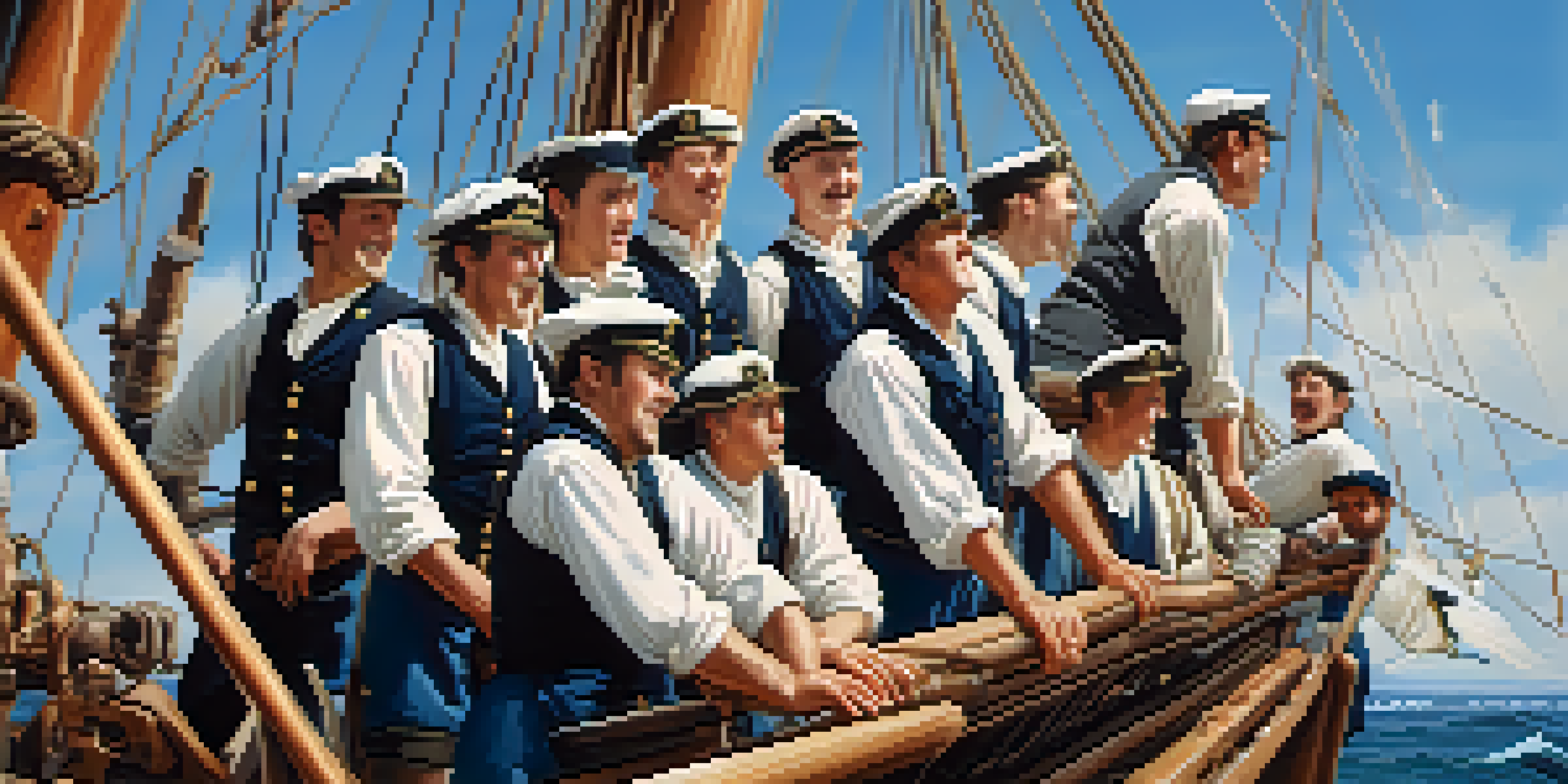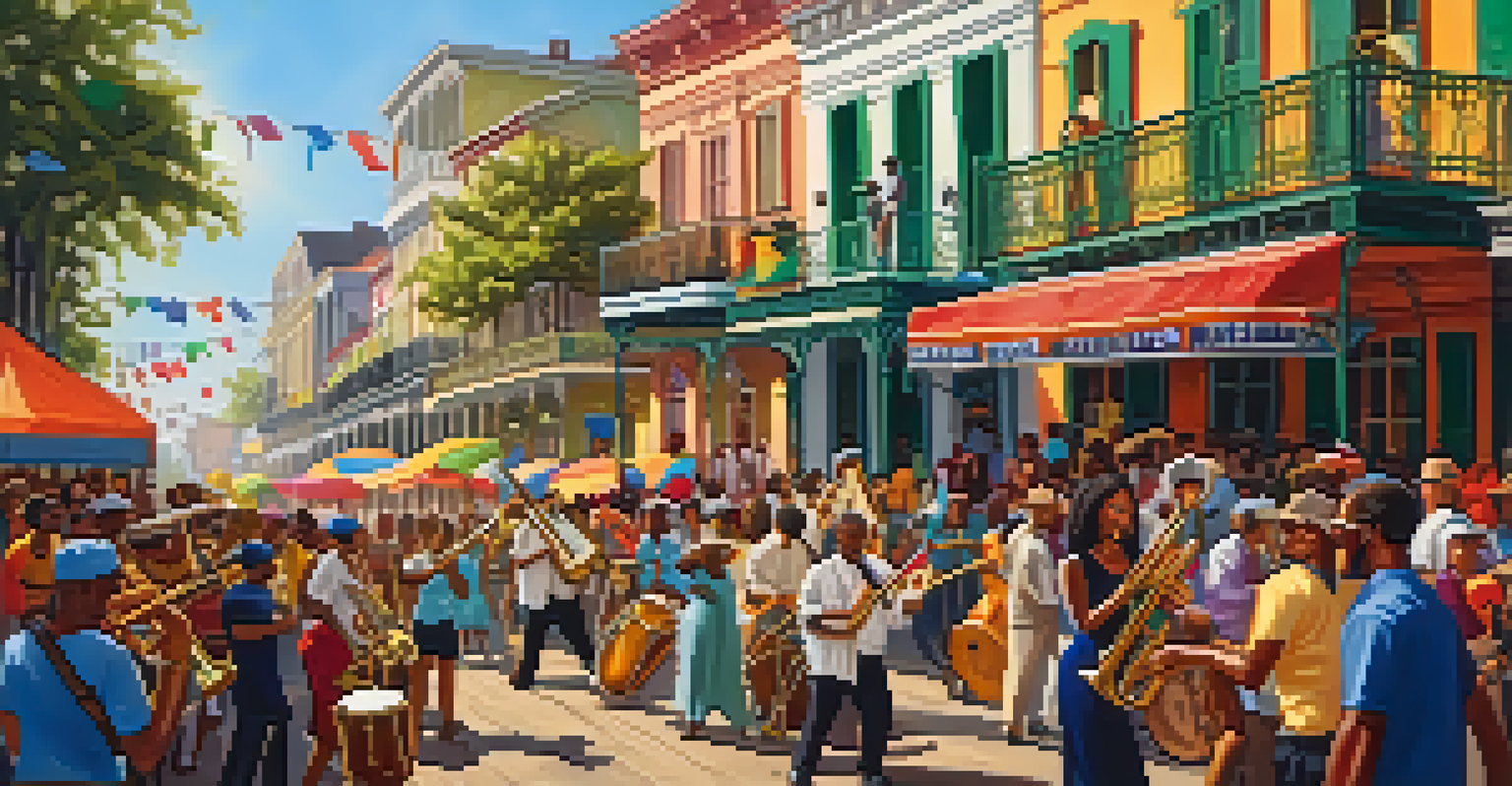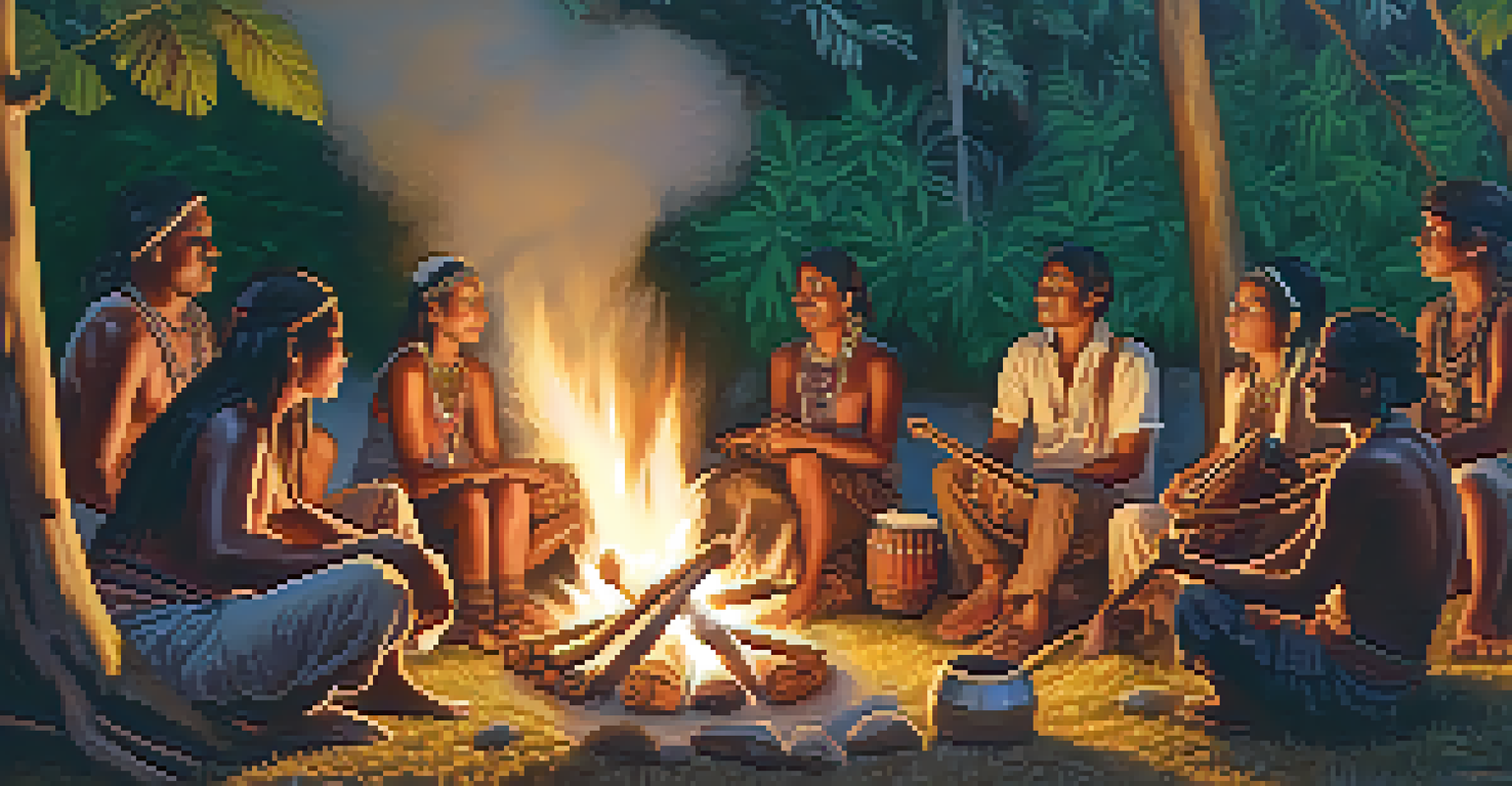The Role of Music in the Age of Exploration and Colonization

Music as a Tool for Navigation and Communication
During the Age of Exploration, music served not just as entertainment but as a vital navigational tool. Sailors often used songs to maintain morale and synchronize their efforts while working on ships. This collective singing helped to create a sense of unity among the crew, essential for long journeys across uncharted waters.
Music is the shorthand of emotion.
Songs often contained instructions or rhythms that could enhance the efficiency of tasks like hoisting sails or rowing. For example, sea shanties were specifically designed to coordinate the physical labor aboard ships, ensuring that crew members worked in harmony.
Additionally, music acted as a universal language, bridging cultural gaps among explorers and indigenous populations. When encountering new lands, explorers could use music to communicate goodwill, fostering initial interactions with local communities.
Cultural Exchange Through Musical Traditions
As explorers ventured into new territories, they brought their musical traditions with them, leading to significant cultural exchanges. The blending of European melodies with indigenous rhythms and instruments created unique musical fusions that reflected the diverse influences of colonization.

For instance, the use of the guitar, which was brought by Spanish colonizers, merged with native instruments to form new genres of music across Latin America. This cultural exchange not only enriched the musical landscape but also contributed to the identity of various regions.
Music as a Navigational Tool
During the Age of Exploration, sailors used music to synchronize tasks and maintain morale, fostering unity on long voyages.
Moreover, these new musical forms often carried stories and histories, allowing different cultures to share their experiences through song. This shared storytelling became a powerful tool for preserving cultural heritage amid the challenges of colonization.
Music's Role in Religious and Spiritual Practices
Religion played a significant role during the Age of Exploration, and music was integral to spiritual practices. Explorers often sought to convert indigenous peoples, using hymns and religious songs as a means of introducing Christianity. This process sometimes resulted in the creation of new religious music that blended European and native traditions.
The history of a people is found in its songs.
For example, in Latin America, the incorporation of indigenous instruments into church music helped make religious practices more relatable for local communities. This adaptation not only facilitated conversions but also allowed for a richer, more diverse expression of faith.
Conversely, indigenous groups often used music to preserve their spiritual beliefs and resist colonization. By maintaining their musical traditions, they asserted their identity and connected with their ancestors, showcasing the powerful role music played in both adaptation and resistance.
The Impact of Colonialism on Music Evolution
Colonialism significantly impacted the evolution of music, as it often led to the suppression of indigenous musical forms. Colonizers frequently imposed their musical tastes and practices, resulting in the marginalization of local traditions. However, this suppression also sparked resilience among indigenous communities, leading them to adapt and transform their music.
For instance, African rhythms were brought to the Americas through the transatlantic slave trade, where they blended with European musical styles, giving rise to new genres like jazz and blues. These new forms not only enriched the musical landscape but also became expressions of cultural identity and resistance.
Cultural Exchange Through Music
Explorers brought their musical traditions, leading to unique fusions that enriched local cultures and reflected shared histories.
Thus, while colonialism sought to erase certain musical traditions, it inadvertently facilitated the creation of new genres that celebrated the fusion of diverse cultures. This dynamic interplay between oppression and creativity continues to influence music today.
The Influence of Music on Colonial Identities
Music played a crucial role in shaping colonial identities, acting as a means of expressing and asserting cultural values. For colonizers, music often reinforced a sense of superiority and national pride, with marches and anthems celebrating conquests and territorial claims. These compositions served to unify people back home, instilling a collective identity rooted in exploration and expansion.
Conversely, for colonized peoples, music became a vital means of expressing resistance and maintaining cultural identity. Songs of struggle and resilience emerged, reflecting the challenges faced during colonization and serving as a rallying cry for unity and empowerment.
This duality of music as both a tool of oppression and a means of resistance illustrates its complex role in shaping identities during the Age of Exploration. The narratives embedded in these musical forms continue to resonate, reminding us of the intertwined histories of both colonizers and the colonized.
The Role of Music in Cultural Integration
As colonizers settled in new territories, music became a means of cultural integration, facilitating relationships between different groups. Festivals and communal gatherings often featured music that blended various cultural influences, creating a shared experience that fostered connections. These events allowed colonizers and indigenous populations to interact, breaking down barriers through the universal language of music.
For example, in places like New Orleans, the melding of African, French, and Spanish musical traditions gave rise to vibrant new genres like jazz. This cultural integration not only enriched the local music scene but also served as a model for coexistence amid diversity.
Music's Role in Identity and Resistance
For colonizers, music reinforced national pride, while for indigenous peoples, it became a powerful means of expressing resistance and cultural identity.
Through shared musical experiences, communities could celebrate their differences while finding common ground. This highlights how music can act as a bridge, promoting understanding and cooperation in the face of cultural divides.
Music as a Reflection of Historical Narratives
Throughout history, music has served as a powerful medium for storytelling, and this was particularly evident during the Age of Exploration and Colonization. Songs often recounted tales of voyages, triumphs, and tragedies, preserving the collective memory of these significant events. Through lyrics and melodies, musicians captured the essence of their experiences, allowing listeners to connect with the past.
For instance, sea shanties not only guided sailors through their tasks but also told stories of adventure and hardship at sea. These songs became a way for sailors to process their experiences, creating a lasting legacy of the maritime life.

Moreover, the music produced during this era often reflects the complexities of colonization, including both the beauty of discovery and the pain of oppression. By examining these historical narratives through music, we gain insight into the cultural dynamics of the time, revealing the intricate tapestry of human experience.